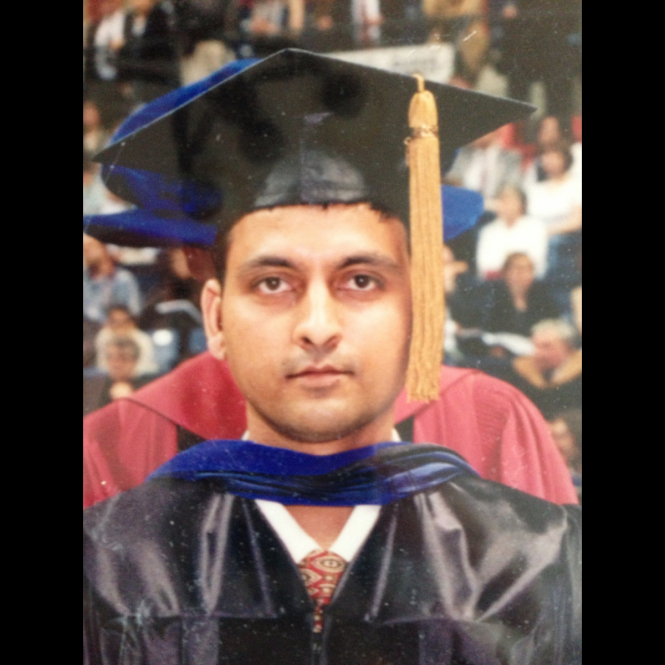By: Eli Freund, Editorial Communications Manager, UConn School of Engineering
Growing up in Hyderabad, India, in a family of modest means, Vijay Raghavan ‘96 knew he wanted to change his life for the better. So, he made a plan.
“I was an only child in a family of very modest means living paycheck to paycheck with absolutely no safety net whatsoever. It was obvious to me that education was my only way out of the paralyzing poverty.”
So, Raghavan set out on a career path in engineering, knowing that was the path to a more stable life.
“These were the decades before the IT (Information Technology) boom when there were only two career paths that guaranteed employment: engineering or medicine. I was bad at biology and good at math which made it easy for me to choose the engineering path.”
Raghavan, a member of the UConn Engineering Academy of Distinguished Engineers and Director of Engineering at MathWorks, a mathematical computing software company located in Massachusetts, initially started off getting his undergraduate degree in India, graduating from Osmania University in 1990.
From there, Raghavan turned his eye towards the United States, to continue his education in graduate school. But Raghavan encountered a problem—schools weren’t willing to invest in his education financially, and he couldn’t afford to pay for his graduate education on his own.
“UConn was the only school that offered me financial assistance. This was thanks to Prof. Krishna Pattipati and Prof. David Kleinman who offered a tuition waiver and graduate assistantship in their Cyber Lab. This was a really a big break for me as I could not have afforded to come to the US without it. I stayed on until 1996 to finish my Ph.D. under Krishna, who supported me throughout my stint at UConn.”
After graduating with his master’s and Ph.D. from UConn Engineering, Raghavan started working for MathWorks in 1996, which produces some of the most recognizable engineering software in the world, like MATLAB and Simulink.
Raghavan has stayed his entire career at MathWorks because of the culture and the unique engineering challenges he gets to tackle on a daily basis.
“I was very fortunate to work on some very exciting projects and technologies that allowed me to grow technically as well as career-wise. At MathWorks we believe in growing engineering leadership from within. This culture gave me ample opportunities to grow from an individual technical contributor to where I am today as a Director of Engineering at MathWorks. I now manage a number of different product areas in the fields of simulation, code generation, verification and validation.”
Looking back on his career, Raghavan realizes that his younger self was right—education was his key to a prosperous and enriching future, and he’s grateful he took that leap. As an alumnus, he has given back to the School of Engineering multiple times, and he urges other alumni to give back.
“Those six years [at UConn] turned out to be the most memorable and formative years of my life. The graduate school courses were amazing.
If you are a successful alumnus reading this, I urge you to look back to your UConn years and try to put a value on those years and see if you can repay a fraction of it. If you are a current student, make sure you remember these years and come back to support UConn when you are able.”



